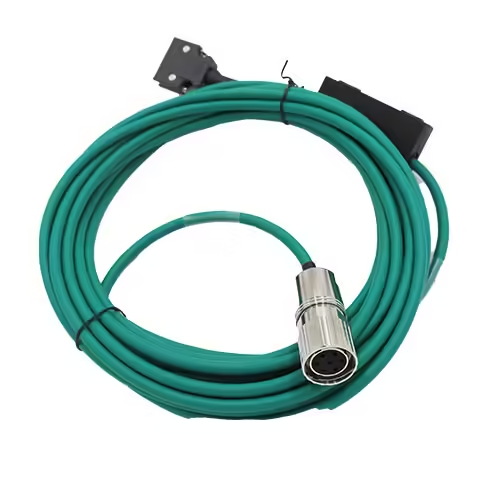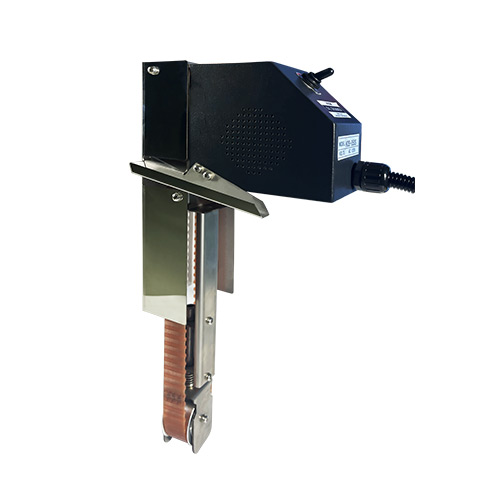-
WhatsAPP: +86 18706448138
-
Tengzhou, Shandong, China

Industrial Lathe: Complete Guide to Types, Uses, and Buying Tips
Learn everything about industrial lathes, from types and uses to buying tips. Discover the best machines for precision and efficiency.
Welcome to My Blog!
Before we dive into the content, if you’re interested in our products or have any questions, please feel free to visit our Contact Us page on the website. Our team is ready to assist you with inquiries, orders, or any support you may need.
Now, let’s get started on our journey together. I hope you find the content here insightful, engaging, and valuable.
Table of Contents
Industrial lathes are a cornerstone of modern manufacturing, offering precision, versatility, and efficiency across various industries. Whether you are a seasoned machinist, an engineering professional, or a business owner exploring equipment investments, understanding industrial lathes is essential. This comprehensive guide explores the types, applications, specifications, buying considerations, and market trends related to industrial lathes.
Introduction

What Is an Industrial Lathe?
An industrial lathe is a machine tool used to shape materials such as metal, wood, or plastic by rotating the workpiece against a cutting tool. The rotation allows for operations like cutting, sanding, knurling, drilling, or deformation, producing precise cylindrical, conical, or complex shapes. Industrial lathes are widely utilized in manufacturing sectors due to their ability to achieve high accuracy and consistent results.
History and Evolution of Industrial Lathes
The lathe has a long history dating back thousands of years, with early versions powered manually or by foot. The Industrial Revolution introduced mechanized lathes, dramatically increasing efficiency and precision. Today, advanced CNC (Computer Numerical Control) lathes incorporate digital technology, automation, and high-speed capabilities, making them essential in industries requiring precision, such as aerospace, automotive, and electronics.
Why Industrial Lathes Remain Essential in Modern Manufacturing
Despite emerging technologies like 3D printing, industrial lathes remain indispensable due to their precision, reliability, and ability to handle high-volume production. Their adaptability to various materials and designs ensures that industries can meet stringent standards and produce complex components with minimal waste.
Types of Industrial Lathes
Manual Industrial Lathes
Manual lathes require the operator to control cutting tools manually. They are cost-effective and ideal for small-scale workshops or custom machining where flexibility is needed.
CNC Industrial Lathes
CNC lathes are computer-controlled machines capable of executing highly precise and complex operations. They are widely used in high-volume production and industries requiring consistent precision.
Heavy-Duty Industrial Lathes
These lathes are designed for large-scale and heavy workpieces, often found in shipbuilding, construction machinery, and industrial equipment manufacturing. They provide enhanced stability and durability for prolonged operations.
Specialized Industrial Lathes
- Woodworking Lathes: Designed specifically for shaping wood materials.
- Metalworking Lathes: Capable of machining steel, aluminum, and other metals.
- Precision Lathes: Used in aerospace and electronics for components requiring extremely tight tolerances.
Industrial Lathe vs CNC Turning Center
While CNC turning centers are a type of industrial lathe, they typically offer more advanced automation, multi-axis operations, and higher production efficiency. The choice depends on production volume, complexity, and budget considerations.
Key Applications of Industrial Lathes

Automotive Industry
Industrial lathes are used to manufacture engine components, shafts, gears, and custom parts with high precision and repeatability.
Aerospace and Aviation
In aerospace, lathes produce critical components such as turbine shafts, landing gear parts, and precision fittings, where exact tolerances are essential.
Shipbuilding and Heavy Engineering
Heavy-duty lathes create large components like propeller shafts and structural parts, capable of handling substantial workpiece sizes.
Custom Machining and Prototyping
Industrial lathes enable workshops to produce prototypes and custom components efficiently, reducing lead times for product development.
Industrial Lathe for Metalworking vs Woodworking
Metal lathes focus on hardness and durability, while woodworking lathes prioritize smooth finishes and shaping flexibility. Understanding the material and purpose is critical when selecting a machine.
Industrial Lathe Machine Features and Specifications
Size and Capacity
The physical dimensions of a lathe and its workpiece capacity determine what size and type of materials can be processed efficiently.
Speed and Power Requirements
Spindle speed, torque, and motor power affect cutting precision and production speed. CNC lathes often provide variable speed controls for versatility.
Accuracy and Precision Control
Precision is measured in microns, and high-end lathes incorporate features like digital readouts, linear scales, and feedback systems to maintain exact tolerances.
Digital and Automation Features
Modern industrial lathes offer features such as automated tool changers, programmable cycles, and connectivity to manufacturing software, increasing productivity.
Safety Systems and Compliance
Safety features, including emergency stops, protective covers, and sensors, are essential for operator safety and regulatory compliance.
Buying Guide for Industrial Lathes
New vs Used Industrial Lathe Machines
New machines provide the latest technology, warranties, and support, while used machines can be cost-effective for small workshops if inspected carefully for wear and maintenance history.
Industrial Lathe Price Factors in 2025
Price depends on type, size, precision level, brand, and included features. CNC and heavy-duty lathes generally command higher prices than manual models.
How to Choose the Right Model for Your Workshop
Consider production volume, material types, precision requirements, available space, and budget. It is crucial to align machine capabilities with manufacturing needs.
Where to Buy Industrial Lathes (Online and Local)
Industrial lathes can be purchased from authorized dealers, distributors, or online marketplaces. Ensure warranty, shipping support, and service accessibility when buying.
Maintenance and Safety of Industrial Lathes

Routine Inspection and Servicing
Regular inspection of bearings, lubrication systems, and electrical components ensures long-term performance and prevents unexpected breakdowns.
Common Industrial Lathe Problems and Fixes
Issues like spindle misalignment, vibration, and tool wear can be mitigated with preventive maintenance and proper training.
Safety Precautions and Best Practices
Operators must follow guidelines such as wearing protective gear, avoiding loose clothing, using guards, and adhering to operational protocols.
Extending Machine Lifespan with Proper Care
Implementing a scheduled maintenance program, using high-quality lubricants, and monitoring machine usage patterns can significantly extend the lifespan of industrial lathes.
Conclusion
Industrial lathes are vital for precision manufacturing across industries. Selecting the right type, understanding applications, adhering to safety standards, and maintaining the equipment properly ensures long-term productivity and quality output. For businesses and workshops, investing in a suitable industrial lathe aligns with efficiency, scalability, and competitive advantage in modern manufacturing.
FAQ
What is an industrial lathe machine used for?
It is used for shaping, cutting, and finishing materials such as metal, wood, or plastic into precise components.
What are the main types of industrial lathes?
Manual lathes, CNC lathes, heavy-duty lathes, woodworking lathes, and precision lathes.
How does an industrial lathe differ from a CNC lathe?
A CNC lathe is computer-controlled and capable of automated, multi-axis operations, whereas a manual lathe relies on operator control.
What should I consider before buying an industrial lathe?
Consider material type, production volume, precision needs, machine size, and budget.
Can an industrial lathe be used for both metal and wood?
Specialized lathes exist for each material; using a metal lathe for wood or vice versa is generally not recommended.
Take Your Manufacturing to the Next Level!
Discover our range of high-quality industrial lathes designed for precision, durability, and efficiency. Request a quote today and elevate your production capabilities.


